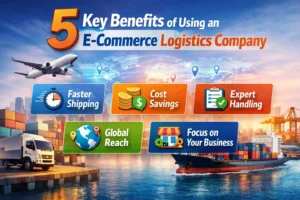Scaling your business overseas is an exciting journey. Once you had grown your business successfully in your local market, scaling it up to overseas market is a sensible next step! However, while scaling your business overseas sounds exciting (and it is exciting), it is not without challenges and obstacles. Before you scale your business to the international market, there are steps you should take to ensure that you will properly scale your business up.
In this article, we have identified the 5 steps that you need to do to scale your business overseas. Let’s get started!
1) Explore your target market

Scaling your business overseas is really a lot like when you are starting up your first business: the first thing you need to do is to explore your target market. Take the time to do market research and understand your market well. Analyze their market trends, demands and competitors. Also, since you already have a business, consider looking into your business model if it will fit into your new market or if you should do some adjustments.
Finally, take the time to assess the scale up’s feasibility – if whether your business is right for that market or you should look for another one. Once you have explored the market and you decide that that market is right for you, it’s time to go and check your finances.
2) Study your finances and get to know financial management
Before scaling up, study your finances and create a buffer around it in case that the scaled up failed.
If you are planning to scale up overseas, it is good to assume that your business is very profitable at this point. However, once you scaled up, your financials will be stretched to your new business. Therefore, ask yourself if your current profitability can sustain the new business. In the event that the new venture failed, consider how are you going to work around that with your finances.
Also, if you haven’t learned financial management yet, consider taking the time to learn even just its basics. Learning the basics of financial management is important because it allows you to see the clear picture of your business’ financial status. You could also consider hiring an accountant that specializes in international finance and markets to help you oversee your finances once you scaled up your business overseas.
3) “Localize” your marketing
What does “localize your marketing” mean? It means that you should study your new market based on their locality or nationality and, from there, you will plan your marketing campaign accordingly. Study its culture, language (which will be very useful when translating your slogan into your language) and their overall local market. Once you study their local market, Once you learned about their market, layout your marketing campaign in such a way that it connects to them rather than it connects to your local market.
Here is a good example: search engines. Not all countries actually use Google as their top search engine. So, when you plan to expand your business to a new country, consider learning which search engine is the most used in that country. Once you learned what it is, focus on working on your SEO marketing for that search engine.
4) Build personal connections to your foreign partners

Fourth, take the time to build personal connections and even visit the country you plan to expand to. While this may sound time- and money-consuming, visiting your target country and meeting your foreign partners in person will actually give you a bigger picture of the country’s culture and marketing landscape. Also, you can use this as an opportunity for social media growth: take pictures of you and the places you visited in that country. That way, you can show that your business does care about your future foreign customers.
Of course, networking is very important in business. If you are to expand your business to a new country, it’s best that you take time in building personal connections to your potential partners and associate. While you can do this online, we suggest that you actually go visit that country. Not only did you meet your foreign partners, but you also get to have a sense of the country that you are planning to expand into.
5) Scale up!
Finally, scale your business up once your new, international business is already running. But here’s the point: you don’t have to grow it all at once. Just like how you grew your first business – slow but steady – that’s also how you are going to grow your new business.
As you operate on your new business, let it be immersed in its new market. Eventually, it will shape itself to meet the specific demands of the market you chose!




